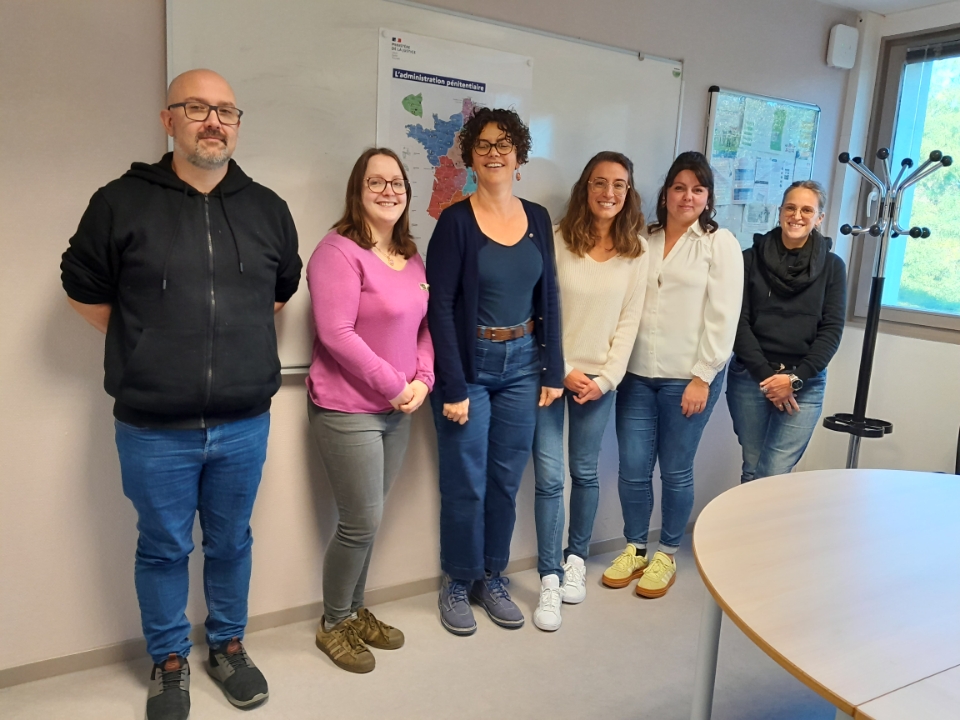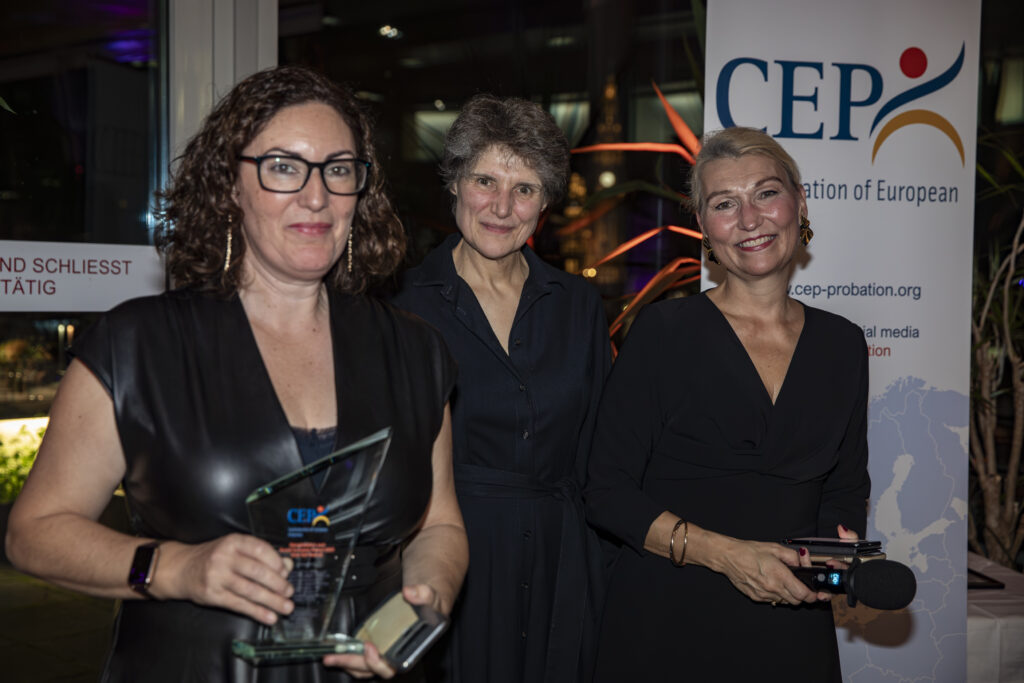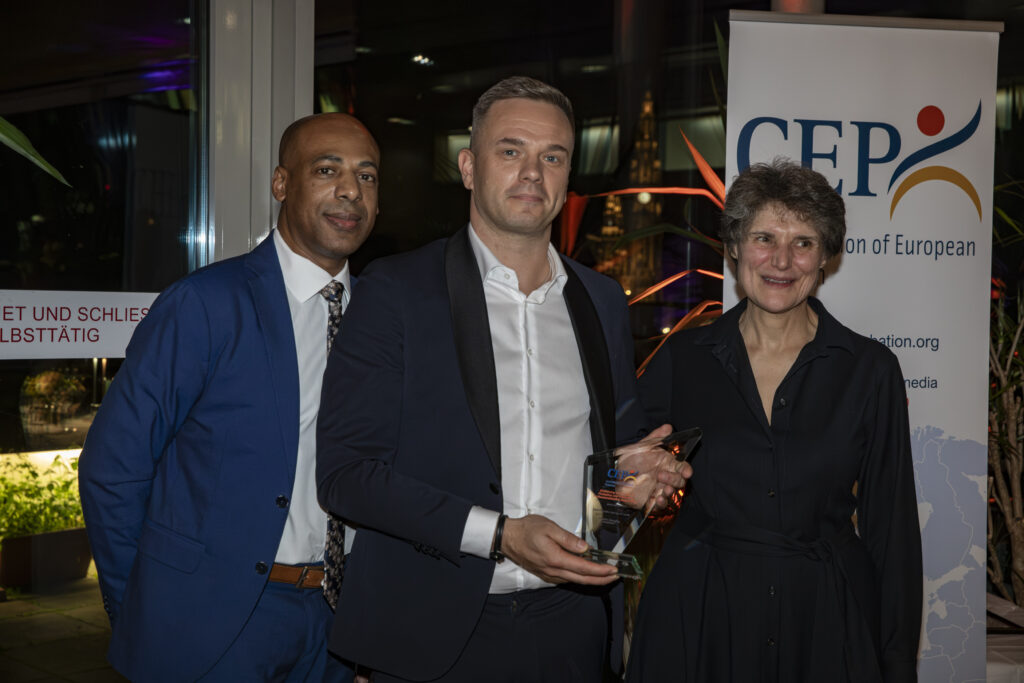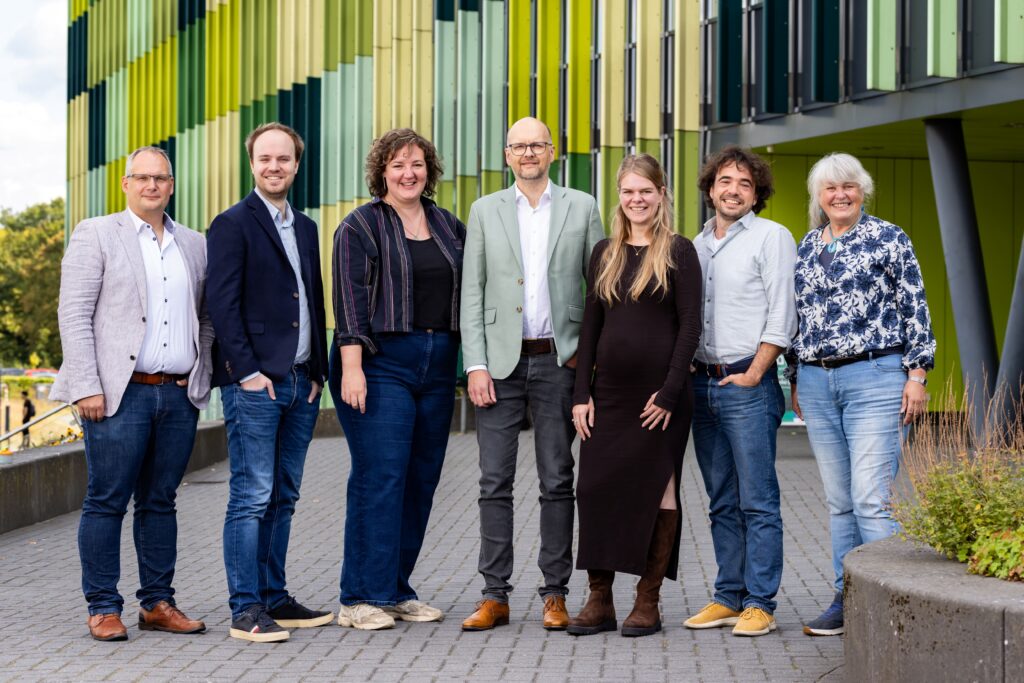Previous Article
News
CEP presents the four winners of the CEP Awards 2025
During the General Assembly aand CEP Conference on Gender-Based Violence in Vienna, Austria, CEP presented the four CEP Awards to its winners With the awards, CEP would like to celebrate outstanding contributions to probation within Europe. We were glad to receive all the impressive submissions of which the following winners are chosen. Congratulations!
Rehabilitation and social inclusion (The Sue Hall Award)
For this category, we have two winners:

- ‘Meuse Probation Service, problem-solving justice specialized in drug addiction in Verdun’ the project from the French MoJ / Meuse Probation Service.
For several years, local care, probation, and justice professionals have observed an evolution of addictive behaviors among the population in the northern region of the Meuse department, which falls under the jurisdiction of the Verdun judicial court. The objectives of the program are as follows:
- Preventing recidivism among individuals who have committed offenses related to drug use.
- Supporting offenders by collaborating with various professionals to help them overcome delinquency.
- Establishing inter-institutional partnerships focused on a collaborative, motivational, pragmatic, and rehabilitative approach aimed at facilitating the beneficiaries’ progress through the problem-solving justice program.
This program requires the identification of individuals who have committed drug-related offenses to include them based on a dual criminological and toxicological assessment. The active participant list typically consists of about a dozen individuals, with around 20 people benefiting from the program each year.
Participants in the program are introduced to the various stakeholders, including the judge, prison integration and probation counselors, social workers, and medical staff. The program is implemented only after a comprehensive presentation of its content and the involved stakeholders, alongside the requirement that the participating individual agrees to follow the program according to the outlined terms and conditions.
One-Stop Shop: To establish problem-solving justice, a single location is needed where drug offenders can meet with their judge and all supporting staff. The multidisciplinary commission convenes at the Verdun Prison Integration and Probation Service, where the judge responsible for executing sentences conducts interviews and meets with partners at the Maison des Associations, a venue provided free of charge by the municipality.
Hearing: The judge responsible for executing sentences meets with individuals in the program on a regular monthly basis to encourage their efforts or, conversely, to swiftly impose sanctions for refusals to engage in the program.
Collaborative Approach: Each hearing follows a multidisciplinary consultation regarding the individual circumstances of each participant with all partners involved. This structured time for hearings reinforces the process of change and provides an educational experience for all attendees.
Locally Integrated Institutional Partnership: The consultation time reflects a strong partnership among various institutions, such as health services, justice, probation, the municipality, and local associations. This collaboration aims to share information, pool expertise, and address the multiple challenges faced by participants, guiding them towards common resolutions. This integrated partnership is anchored within the local community, striving to enhance the community’s quality of life by addressing the challenges posed by drug-related crime.
Ritual of Desistance: The culmination of the journey away from delinquency is celebrated through a diploma award.

- The project ‘The inclusion of Restorative Justice practice in Probation’ from the Department of Justice and Democratic Quality in Catalonia – Directorate General of Probation and Juvenile Justice, in collaboration with AGI Fundation (Fundació Assistència i Gestió Integral).
The project presented to these awards is focused on developing Restorative Justice practices within the Probation teams of a pilot territory in Catalonia. Probation work in Catalonia is very much focused in the individual intervention with the offender: the intervention that is carried out by Probation officers consists in an individualized approach to the offenders addressing criminological risk and needs while neglecting the impact of the offender behaviour and the consequences of the crime to the victim. The inclusion of Restorative Justice practice in Probation project wants to integrate the perspective of the victim as part of the rehabilitation process with the offender placing the victim at the centre and focussing on a rehabilitative work with the offender rather than a punitive work.
This project is part of a broader initiative by the Department of Justice and Democratic Quality in Catalonia, which aims to develop all the possibilities of Restorative Justice (RJ) across all types of crimes, at every stage of the criminal justice process, and using a variety of RJ methodologies in a pilot region of Catalonia: Tarragona and Terres de l’Ebre.
The specific project we are submitting for these awards focuses on integrating RJ practices into the Probation teams of this pilot territory. In Tarragona and Terres de l’Ebre, there are three probation teams, each consisting of coordinators, probation officers, and administrative staff.
Probation work in Catalonia traditionally focuses on offender-oriented interventions, addressing psychological, social, and educational needs. However, this approach often overlooks the impact of the offender’s behavior on the victim. Our project seeks to change that by integrating the victim’s perspective into the offender’s rehabilitation process. There is a pressing need to place the victim at the center of the intervention. In short, through the collaboration between RJ practitioners and Probation teams, the goal is to raise the offender’s awareness of the victim’s experience and initiate a process of restoration, when possible. This includes addressing the consequences of the crime on the victim’s daily life and on the wider community, promoting restitution or reparation, fostering offender accountability, and encouraging a more conscious and responsible fulfilment of the alternative sentence.
The 2025 work plan includes the following actions: strengthening mutual understanding between RJ and Probation teams through regular meetings; finalizing a referral and coordination protocol between the two services; selecting initial cases for referral to RJ before summer; and starting joint interventions involving both offenders and victims. The project also includes follow-up and evaluation measures to consolidate long-term collaboration between services.
The implementation of Restorative Justice (RJ) within the field of Probation Teams will allow progress toward a more efficient model of sentence execution, more human, and focused on social reintegration acknowledging the e Council of Europe Probation Rules among other international recomendations. The innovative RJ approach, in collaboration with Probation Teams, strengthens the fulfilment of human rights by ensuring respect and dignity for all parties involved, while promoting a more participative, inclusive, and socially responsive justice system.
Learn more about this project.
Enhancing the profile of probation and promoting professionalization

The winner of the CEP Social Inclusion Award is the project Changing Perceptions by the State Probation Service of Latvia.
The Latvian State Probation Service (SPS), just over 20 years old, has become a leader in improving public safety and reshaping societal perceptions of people who have committed crimes. Its communication strategy reaches over 20 million repeat contacts annually, reflecting a long-term investment in public awareness and trust-building.
This nomination highlights three strategic communication initiatives, each demonstrating SPS’s commitment to changing attitudes, reducing stigma, and positioning probation as a key element of justice in Latvia.
1. “Pārmaiņas nozieguma ēnā” – Changes in the Shadow of the Crime
(7 episodes – Latvijas Radio 1, LSM.lv)
Produced in collaboration with Latvian Public Broadcasting and investigative journalist Linda Spundiņa, this 2024 series explored the work of SPS through seven powerful stories. It illustrated the human side of probation, featuring:
1. Robert’s path from childhood abandonment and crime to reintegration after prison,
2. Experiences under electronic monitoring,
3. Work with persons with a history of sexual offending, aiming to change distorted thinking,
4. Liene’s story of mentoring and support after release,
5. Challenges of community service, including recidivism and employer involvement,
6. Restorative justice practices through volunteer mediators,
7. An interview with the SPS Director outlining a vision for safer communities.
The series stood out for its diversity of voices—clients, volunteers, professionals, NGOs—its multiplatform format, and distribution via trusted national media.
2. “Aizēnotie motīvi” – Motives Behind the Crime
(5 episodes – Latvian Radio, LSM.lv)
Launched in 2025, this five-part series tackled the question: why do people commit serious crimes? Each story delved into personal histories marked by trauma, addiction, or social breakdown:
1. Jānis, addicted and repeatedly imprisoned for theft,
2. Kārlis, who committed murder under the influence of synthetic drugs,
3. Gunta, who ended a violent relationship through a fatal act,
4. Gatis – a man with a history of sexual offending, shaped by neglect in childhood.
5. An anonymous driver imprisoned for chronic drunk driving.
The series provided a balanced and empathetic perspective, exploring the deeper psychological and social roots of offending while highlighting probation’s role in rehabilitation through structured support, supervision, and psychosocial services. As with the first series, collaboration with Latvian Public Broadcasting ensured broad reach and credibility.
3. “20 Years of Probation – Bringing Positive Change to Society”
(3-part video campaign – SPS original content, Facebook)
To mark its 20th anniversary, SPS launched a three-part video series tailored for social media. It highlighted the long-term benefits of probation for individuals and society, including:
1. Former clients’ transformation journeys,
2. The daily dedication of probation staff,
3. Improved public safety through community-based sentencing.
This hopeful, visually engaging campaign reached over 550,000 unique Facebook viewers, becoming one of Latvia’s most impactful justice awareness efforts in recent years.
Samples of the project:
Probation Research Award

The winner of the CEP Probation Research Award is the Research group Modelling Societal Impact from Saxion University of Applied Sciences in cooperation with Reclassering Nederland, SVG Verslavingsreclassering and Leger des Heils Jeugdbescherming & Reclassering in the Netherlands for their research on Modelling the societal value of probation in the Netherlands.
Since 2017 the research group Modelling Societal Impact has used quantitative and qualitative methods to assess the societal value of the Dutch probation services. The main research consists of a social cost benefit analysis (SCBA) using large data sets from the Dutch Central Bureau of Statistics and data from probation services itself. To be able to perform a SCBA, literature, interviews and focus groups were used to build a qualitative causal model which describes the possible benefits and effects (both positive and negative) of the Dutch probation services.
Possible benefits are:
- reduced costs for prevention, detection, prosecution, trial, enforcement, suspect support, victim support and damages by means of reduced recidivism and criminal behaviour;
- avoided costs for eviction, debts and social shelter. The probation services add stability and stimulate a healthy living situation including financial security;
- added societal value because of increased participation in education and (voluntary) work. The probation services stimulate clients to pursue a career or a higher education;
- avoided costs for healthcare (both physical and mental health care). By helping people now, they will not need (more expensive) healthcare in the future;
- improved quality of life;
- improved trust in the judicial system.
For all the different effects and benefits we developed a quantification method. Using data from the Dutch probation services combined with Microdata of the Central Bureau of Statistics in the Netherlands, supplemented with data from other relevant sources and literature, we were able to analyze changes in time surrounding probationers to quantify a large number of the effects and benefits. For the items for which we did not have data we based the quantification on values found in literature or expert judgement.
The study population consists of all probationers with an active involvement in 2016 (N=83,794). Active involvement means that the probation was actively working on the relevant assignment for the client. The year 2016 was chosen because we wanted to use an as recent as possible population, with the requirement that we can follow people for at least three years. At the start of the quantitative analysis, data was available until 2020, therefore 2016 was the correct year to use.
Although we acknowledge that a change in the behavior of a probationer, can also have a ripple effect on their social network, for now we focus on the societal benefits directly related to the behavior of the probationer. At €507 million, the benefits are significantly greater than the annual costs of the three probation organizations (€217 million in 2016). Despite a margin of uncertainty and the current exclusion of benefits related to the probationer’s environment and avoided victims, it can be concluded that the societal benefits of probation in the Netherlands outweigh the costs.
More information about this project.
More info about CEP Awards or previous edition, click here
To see the highly commended and runner-up list, click here

Related News
Keep up to date with the latest developments, stories, and updates on probation from across Europe and beyond. Find relevant news and insights shaping the field today.
New

Probation in Europe
New Division episode: Daniel Wolter on the DBH Federal Association
23/02/2026
The 18th episode of Division_Y features Daniel Wolter, Director of the DBH Federal Association for Social Work, Criminal Law and Criminal Policy, based in Cologne, Germany.
New

Victims rights
European Day for Victims of Crime
23/02/2026
Yesterday, 22 February, marked the European Day for Victims of Crime.
At CEP, we recognise that crime causes harm to individuals and communities. Probation work focuses on accountability, rehabilitation and reducing reoffending, contributing to the prevention of further victimisation.

CEP Board
Interview with new CEP board member Jana Bewersdorff
19/02/2026
During the General Assembly in Austria, a new CEP Board got elected for the upcoming three years. In the coming weeks we will publish interviews with all newly-elected board members where they will share information on their professional background, how they would like to contribute, what challenges lie ahead and many more.
Enjoy reading!
Recap

Research
Recap: Expert group on Research
18/02/2026
The Expert Group on Research met on 17 February at the CEP office in Utrecht, The Netherlands, for its annual face‑to‑face meeting.
New

CEP members
New CEP member: Killian Evert
17/02/2026
In recent weeks, CEP has interviewed individual members and representatives of the new member organisations that joined CEP at the beginning of 2026. In these interviews, the new member organisations or individual members will share information on why they decided to become members, how they would like to contribute to the development of CEP and many more.
Enjoy reading!
New

CEP Board
Interview with new CEP board member Line Elisabeth Wilberg
11/02/2026
During the General Assembly in Austria, a new CEP Board got elected for the upcoming three years. In the coming weeks we will publish interviews with all newly-elected board members where they will share information on their professional background, how they would like to contribute, what challenges lie ahead and many more.
Enjoy reading!
Subscribe to our bi-monthly email newsletter!
"*" indicates required fields
- Keep up to date with important probation developments and insights.

